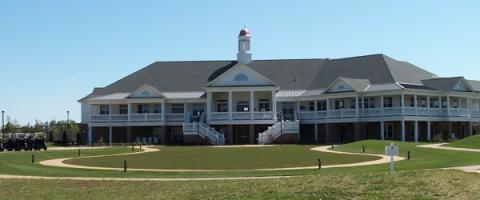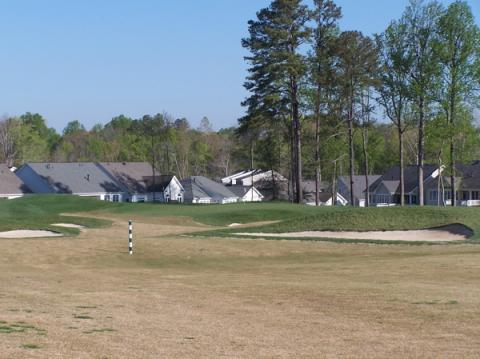
The clubhouse at Colonial Heritage in Williamsburg, VA, is huge and the center of the community's many activities.
One of the questions I always try to ask golfing retirees is whether they had considered one of the many age-restricted communities that have sprouted across the nation over the last few decades. These enclaves, often referred to as "active adult" or "active retirement" communities, emphasize recreation and other activities, creating essentially a year round summer camp for 60- and 70-somethings.
The folks I've interviewed, almost to a person, said they only briefly
Most comments, especially from those in their ‘50s, went something like, "Why would we want to hang around only with old people?" This, of course, is somewhat ironic coming from a Baby Boomer generation that once didn't trust anyone over 30.
Irony aside, I must confess this Baby Boomer too has never quite gotten the "active retirement" community thing, despite an eye-opening visit a few years ago to
All that said, these communities are now facing their biggest crisis of the last 30 years, according to a front page story in today's Wall Street Journal, and facing a decision on whether to hold to the model of age segregation. The tipping point in these communities is 80%; that is the number of residents who must be over the age of 55 in order for the community to lawfully exclude younger people. Because many homes sit unsold in newly developed 55+ communities, the old folks are now faced with giving permission for young whippersnappers (below 55) to move in and help pick up the financial burden. Once that level dips below 80%, the age restriction covenant is gone forever in that community. But in communities like the one in New Jersey where only 32 of 175 homes have been sold, the few residents are faced with an escalating share of expenses for the clubhouse activities and may have little choice but to eliminate their age restrictions.
Of course, supply and demand guide pricing in real estate, and undeniable bargains are available in some of these communities right now for those inclined toward the quiet, high-activity lifestyle in places like Colonial Heritage. Sure, it is wise to exercise caution and to be wary of the threat of escalating dues in a community that may not be fully built out for a few years to come. However, if you can buy a house for $50,000 less than market value in a community you would enjoy living in, that $50,000 in savings will help pay for many years of dues. In the end, one hand giveth as the other hand taketh away.

In order to keep housing costs to a minimum, some age-restricted communities build homes on small lots and, therefore, close together, as behind the first green at Colonial Heritage.



